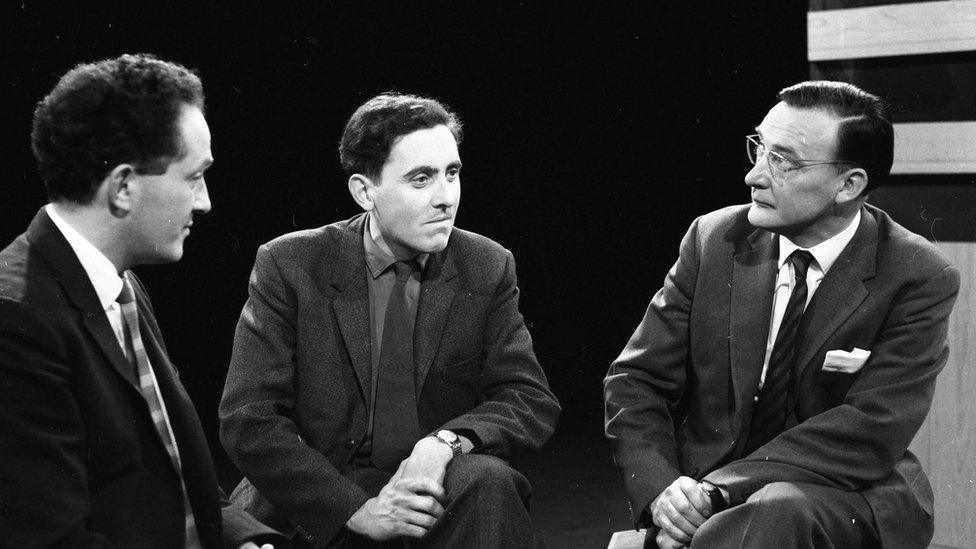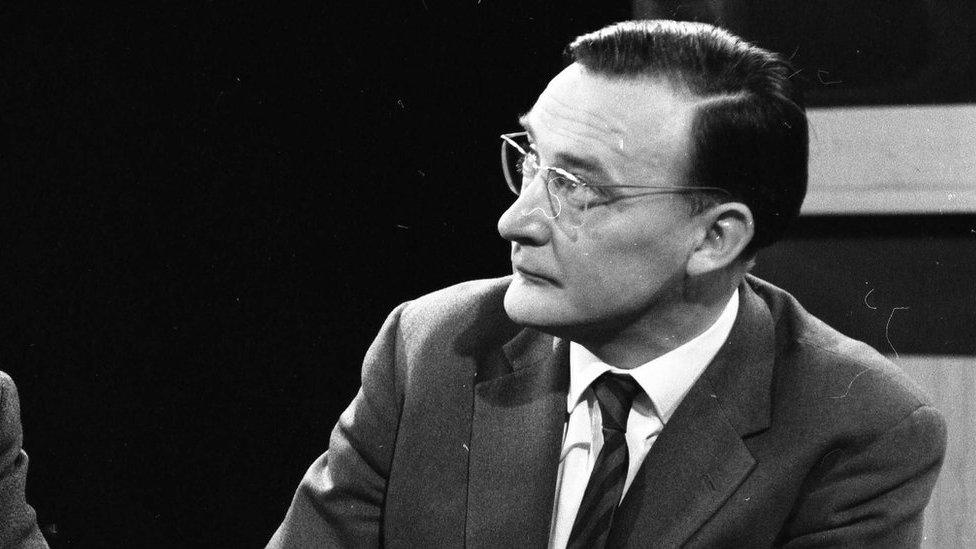Welsh Labour peer Gwilym Prys Davies dies aged 93
- Published

Gwilym Prys Davies (R) was a presenter of the BBC programme Cenedl Hollt (Divided Nation)
The former Labour politician Gwilym Prys Davies has died at the age of 93.
A vocal supporter of devolution, he served as a special adviser to Lord Morris of Aberavon when he was Welsh Secretary in the 1970s.
Later given a peerage as Lord Prys-Davies, his experience in the Welsh Office reinforced his view that Wales needed an elected assembly.
BBC presenter Huw Edwards described him as "one of the most influential figures in modern Welsh political life".
Born in Llanegryn, Meirionnydd, he served in the Royal Navy during World War 2 before studying law and qualifying as a solicitor.
Mr Davies first joined Plaid Cymru, which he left after it failed to support the cause of members backing a republic.
He switched to Labour, standing as its candidate in the 1966 Carmarthen by-election won by Plaid leader Gwynfor Evans.
Following his defeat, Mr Davies backed Labour devolutionists with the aim of securing "political responsibility for Welsh life".
In 1974, the new Labour government's Welsh Secretary John Morris appointed him as a special advisor, in which role he supported the case for devolution.
However, he was disappointed at the decision to hold a referendum in 1979 on creating a Welsh assembly, and did not feel the government threw its weight behind the idea, which was heavily defeated in the vote.
Granted a peerage in 1982, Lord Prys-Davies was the first person to take his oath in Welsh, and served as an opposition spokesman for Labour on Wales, health and Northern Ireland.
As a solicitor, Mr Davies pioneered the use of Welsh in court, and represented the parents of children killed in the Aberfan mining disaster in their campaign to secure justice.
"Gwilym Prys Davies was a modest man who achieved great things," said Mr Edwards.
"His contribution to modern Wales, in the shape of devolving power and strengthening the status of the Welsh language, will be recognised for many years to come.
"He worked tirelessly to promote Welsh interests at Westminster, and his devotion to Wales and its people was unconditional."
- Published29 March 2017
